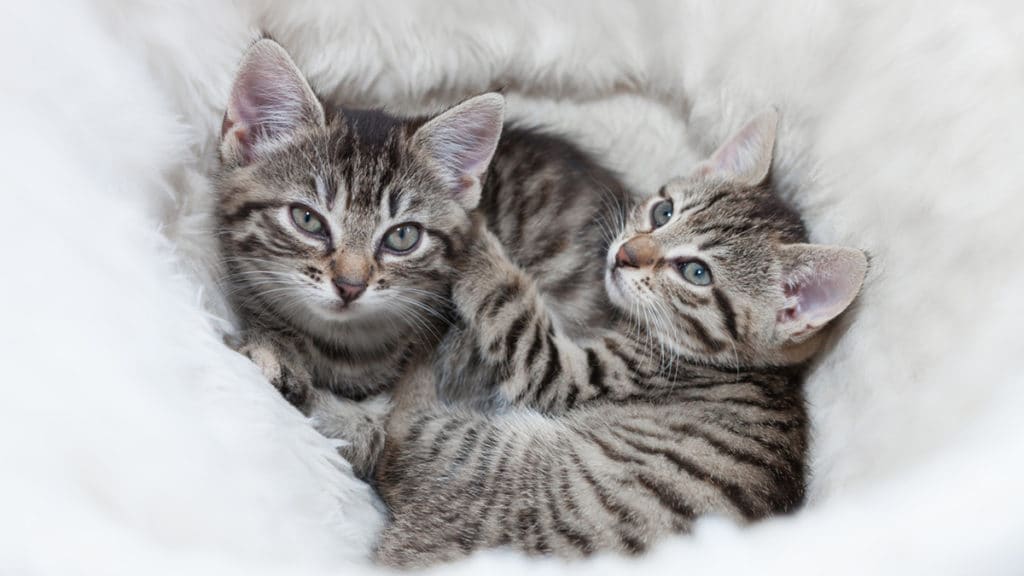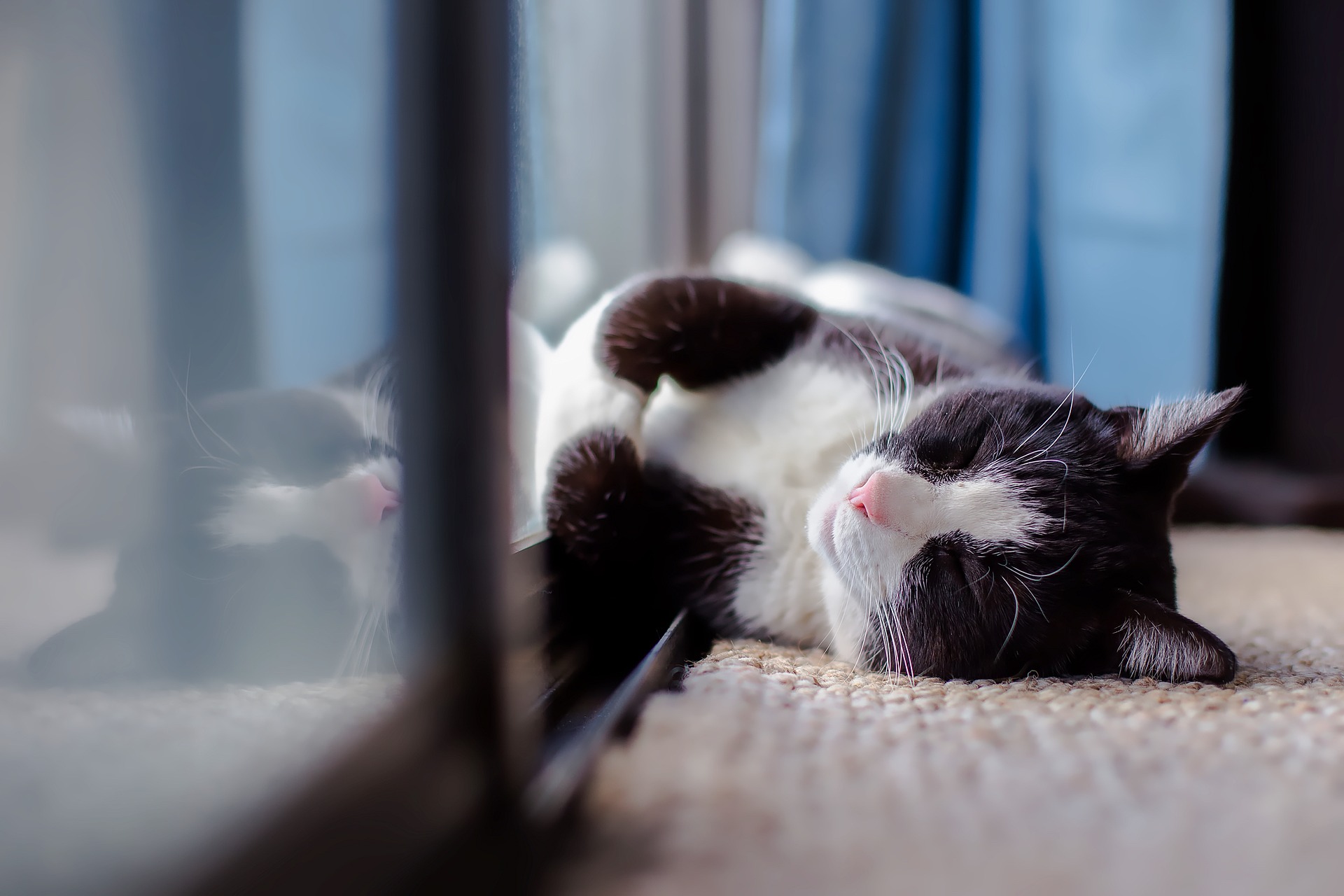do indoor cats need vaccinations
Currently the recommendation for indooroutdoor cats is to administer the FVRCP vaccine annually. I do not recommend that any cat receive subsequent boosters any more often than every three years.

Are Vaccines For Indoor Cats Necessary Bechewy
Until your kitten is fully vaccinated and neutered.

. This vaccination combination is commonly known as the F3 vaccination. This is because FeLV only usually spreads between cats in close and regular contact but cat flu and panleukopaenia are very infectious and can spread on clothes shoes and other surfaces. It is a myth that cats who live indoors do not need to be vaccinated against infectious diseases.
Many owners of indoor cats elect a 5-7 year period. Core vaccines include rabies and FVRCP feline herpes virus panleukopenia virus and calicivirus. Inoculating your pet is the only surefire method for protecting them.
If you have an outdoor only or an indooroutdoor cat then they will need shots as well. Lastly vaccinating your cat indoor or outside may be required by law. Not specified but rabies vaccination of dogs cats and ferrets is required in accordance with schedules in the Compendium of Animal Rabies Prevention and Control 2011.
--HR Washington DC. The simplest answer is that rabies vaccines are required by law for all cats and dogs over the age of six months in New York state - and many other states have similar requirements. Kittens should receive this shot at 6-8 weeks because they are.
Why Do Indoor Cats Need Pet Vaccines. Veterinarians have suspected for years that annual vaccinations for cats and dogs arent necessary but large well-controlled studies just. When to give vaccines.
For example vaccination against rabies is core whereas protection against feline leukemia virus is non-core for an indoor cat. Why do indoor cats need vaccinations. While there are certain mandatory or core vaccines for cats there are also noncore vaccines for different lifestyles or vaccines that are only recommended during the kitten years.
The type and frequency of vaccines given after that point varies considerably depending on a cats lifestyle and where you live. If your cat is truly 100 indoors and does not have contact with indoor-outdoor cats the current recommendation is to continue to receive boosters for panleukopenia feline herpes type 1 calicivirus every 3 years as these diseases do not require. The rabies vaccination certificate developed by the National Association of State Public Health Veterinarians Inc.
Feline rhinotracheitis virus feline calici virus and feline panleukopenia virus make up the feline. Secondly by keeping your cat indoors you minimize the risk. Vaccines recommended may vary.
Is adopted as the only valid rabies vaccination certificate. Even indoor cats can contract a disease. He knows you and your cat.
Most of all this vaccine helps your cats immune system remain ready to respond to these diseases. You need to talk to your veterinarian. But thats probably not a very satisfying answer.
If this were a yes-or-no question the answer would be no. We hope that it never happens to our beloved pets but as I noted above cats can and do escape from their homes. Cats heading into stressful situations such as boarding may benefit from a core vaccine booster 7-10 days before.
These diseases are airborne so every cat needs to be vaccinated against them. Your kitten will need two sets of vaccinations to get them started - their first set at nine weeks old and a second booster set at three months old. Core vaccines are those that all unvaccinated cats and cats with an unknown vaccination history should receive to protect them against key diseases including enteritis feline panleukopaenia a parvovirus and cat flu feline calicivirus and feline herpesvirus.
If your cat ends up in a shelter she could be exposed to sick cats. The FVRCP vaccine is important for all cats including indoor cats because it protects against three viruses that are airborne and spread without cat-to-cat contact. Unless you live in an impregnable compound sealed off hermetically from all contact with the outside world yes.
Indoor cats do need the FVRCP vaccine. For your totally indoor cats I recommend the FVRCP and the rabies vaccine. For indoor-only cats the recommendation is to administer the vaccine every three years.
The FVRCP is the most important vaccine. Your veterinarian is your best resource for figuring out the best vaccine routine for your feline family member but this chart will help you understand the basics. While living an indoor lifestyle is certainly safer overall than living outdoors and indoor living contributes to a longer life expectancy important infectious diseases can find indoor cats.
The details of the vaccinations varies from state to state and often refers to the label of the specific vaccine used. Although you referred to these vaccines as yearly some of these vaccines are not necessarily required annually. Yes you should vaccinate your indoor cat.
If your cat lives exclusively indoors they will still need to be vaccinated against cat flu and panleukopenia but may not need the FeLV vaccine. Noncore Vaccines for Cats. Feline leukemia a usually fatal cancer caused by a retrovirus spreads from cat to cat via saliva when the animals lick bite or groom one another.
However as your cat is going to be an indoor cat he is likely to be at lower risk of coming into contact with these viruses. Feline immunodeficiency virus FIV 1 vaccination is more common outside North America. If you want to continue offering your cat full protection then a booster vaccination is required in line with the vaccine manufacturers license for the vaccine.
Most states have laws regarding the vaccination of pet animals dogs cats and ferrets as well as other domestic animals. Feline leukaemia virus is also commonly included. Youll also need to prove your indoor cat is vaccinated if you place them in a.
Up-to-date vaccinations protect your cat against the unexpected. The most important thing is to keep your cat up-to-date on the rabies vaccine dont even let your cat go one day beyond the expiration date of the rabies certificate as it voids it. In terms of how often to repeat a dose with a booster shot this is decided by how long protection lasts.
For instance they might escape or come into contact with a sick animal at the groomer or a boarding facility. Some of the non-core vaccines have questionable efficacy for your cats health and are not generally recommended. There are several things you can do to protect your cat from this deadly virus.
Kittens should start getting vaccinations when they are 6 to 8 weeks old until they are about 16 weeks old. Your cats age and general health need to be considered. Then they must be boostered a.
Do indoor cats need shots. Do outdoor cats need shots. After this kittens and cats usually need booster vaccinations once a year.
And in some cases How do you know which non-core vaccines are appropriate for your cat. A previously vaccinated cat who is infected with rabies.

What Vaccines Do Indoor Cats Need Nasa Pet Hospital

Why Won T My Cat Let Me Hold Her Here Are 8 Possible Reasons Meows N Paws Pets Cat Grooming Pets Cats

Do Indoor Cats Need Shots Every Year Clever Pet Owners

Cat Vaccinations Feline Shots Treatments Morinville Vet Clinic

Do Indoor Cats Need Vaccines Vet Help Direct

Do Indoor Cats Need Rabies Vaccinations The Honest Kitchen Blog
Do Inside Cats Really Need All Those Vaccinations Quora

Great Campaigns For Pet Adoption Dog Marketing Animal Shelter Sheltered Life
